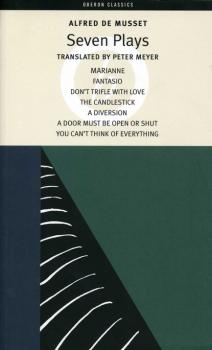Альфред де Мюссе
Список книг автора Альфред де МюссеСын Тициана
В 1575 году в Венеции начинается эпидемия чумы. Тициан, заразившись от своего сына, умирает 27 августа 1576 года. Его нашли на полу мертвым с кистью в руке. Но, наша повесть не о художнике Тициане, а о художнике Пиппо – родном сыне Тициана, точнее о его любви…. О любви, которая перевернула всю его жизнь…
Сын Тициана
В 1575 году в Венеции начинается эпидемия чумы. Тициан, заразившись от своего сына, умирает 27 августа 1576 года. Его нашли на полу мертвым с кистью в руке. Но, наша повесть не о художнике Тициане, а о художнике Пиппо – родном сыне Тициана, точнее о его любви…. О любви, которая перевернула всю его жизнь…
Сын Тициана
В 1575 году в Венеции начинается эпидемия чумы. Тициан, заразившись от своего сына, умирает 27 августа 1576 года. Его нашли на полу мертвым с кистью в руке. Но, наша повесть не о художнике Тициане, а о художнике Пиппо – родном сыне Тициана, точнее о его любви…. О любви, которая перевернула всю его жизнь…
Alfred de Musset: Seven Plays
The seven plays in this collection share a light-hearted tone, though with occasional and unexpected moments of seriousness. In Marianne , a confirmed cynic intercedes with a married woman on behalf of his best friend. In the eponymous hero of the modern 'fairy tale' Fantasio , by turns imaginative, abrupt and perceptive, Musset provides us with a compelling self portrait. Don't Trifle with Love shows the dangerous strategems of two childhood sweethearts, supposedly destined for marriage. In The Candlestick , an infatuated clerk is set up as a decoy by his employer's young wife and her lover. The one act plays A Diversion , A Door Must be Open or Shut and You Can't Think of Everything deal, in witty, epigrammatic style, with various aspects of romance: a wife and her friend test her husband's fidelity, or lack of it; a man wants to propose to his bantering, blasé hostess; and a couple in love, one absent-minded, the other forgetful, tries to concentrate long enough to get married.
La confession d'un enfant du siècle
Alfred de Musset est un poète et dramaturge français du XIXe siècle qui a sa place au Panthéon des romantiques. «La Confession d’un enfant du siècle» est une de ses œuvres les plus connues; il y parle des maux de sa génération, blasée et mélancolique. Ce sont ces deux vices qui empêchent le héros principal de goûter au bonheur avec l’élue de son cœur.









